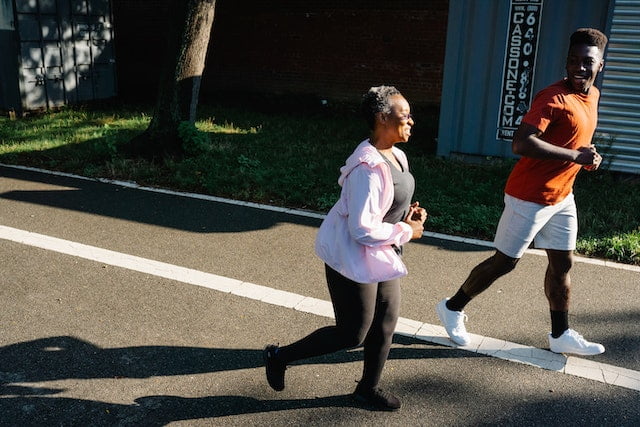It is crucial to clarify that none of the content shared through any of our platforms — including our website, YouTube channel, social media, or any other place where we might share information — is intended to be, nor should it be considered as, health advice.
Losing weight as a senior can be challenging, but it is not impossible. Whether you are trying to shed a few pounds or make a significant change to your weight, these 15 tips can help you reach your goals in a healthy and sustainable way.
- Consult with your healthcare provider before starting a weight loss plan. Your doctor can help you determine a safe and appropriate calorie deficit based on your age, health status, and activity level.
- Focus on healthy eating rather than dieting. Instead of restricting certain foods or following a fad diet, focus on incorporating more whole, unprocessed foods into your meals. Choose a variety of vegetables, fruits, whole grains, lean proteins, and healthy fats.
- Don’t skip meals. Skipping meals can lead to overeating later in the day and may cause your metabolism to slow down. Instead, try to eat regular, balanced meals throughout the day.
- Be mindful of portion sizes. It’s easy to over-consume calories, especially when eating out or eating pre-packaged meals. Use measuring cups or a kitchen scale to ensure you are getting the right amount of food.
- Drink plenty of water. Water can help fill you up and keep you hydrated, which can help you feel fuller and more satisfied. Aim for at least eight cups of water per day.
- Don’t rely on sugary drinks or alcohol for hydration. Sugary drinks and alcohol are high in calories and can contribute to weight gain. Instead, choose water, unsweetened tea, or low-fat milk.
- Incorporate physical activity into your daily routine. Aim for at least 30 minutes of moderate intensity activity per day, such as brisk walking or cycling. If you are just starting out, try breaking up your activity into shorter, 10-minute bursts throughout the day.
- Choose activities you enjoy. It’s easier to stick with an exercise routine if you enjoy the activities you are doing. Try out a variety of activities and find what works for you.
- Find a workout buddy. Having a workout partner can help keep you accountable and motivated. Look for a friend or family member who shares your fitness goals and schedule.
- Don’t be afraid to lift weights. As we age, it’s important to maintain muscle mass to keep our metabolism up and prevent bone loss. Incorporating strength training exercises into your routine can help you build and maintain muscle mass.
- Get enough sleep. Adequate sleep is important for weight management and overall health. Aim for 7-9 hours of sleep per night.
- Don’t skip breakfast. Eating breakfast can help kickstart your metabolism and keep you feeling full and satisfied throughout the day. Choose a balanced breakfast with protein, whole grains, and a serving of fruit.
- Practice mindful eating. Pay attention to your food and the sensations of hunger and fullness. Avoid distractions such as TV or phones while eating, and take the time to savor your food.
- Don’t get too hungry. If you let yourself get too hungry, you may be more likely to make unhealthy food choices or overeat. Keep healthy snacks on hand to help curb cravings and keep your energy levels stable.
- Avoid eating late at night. Eating close to bedtime can lead to weight gain, as your body may not have the opportunity to burn off the calories before you go to sleep. Try to finish your last meal or snack at least two hours before bed.
Affiliate Disclosure: I only recommend products I would use myself and all opinions expressed here are our own. This post may contain affiliate links that at no additional cost to you, I may earn a small commission.




























